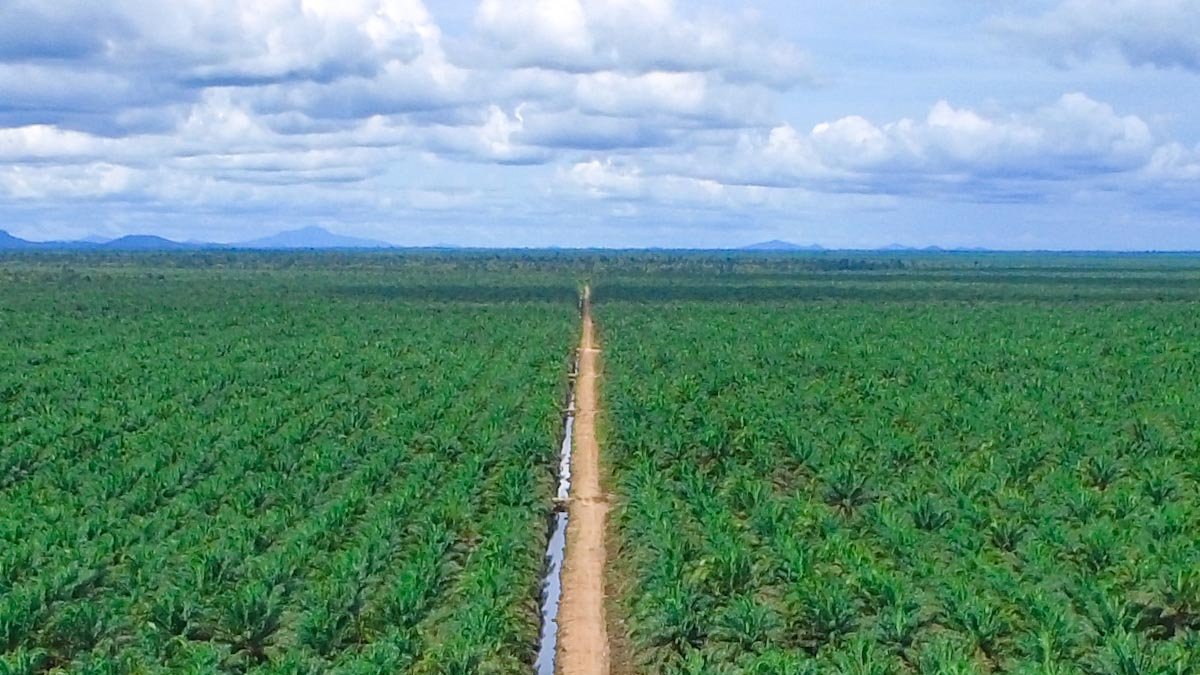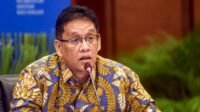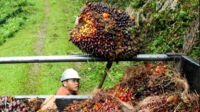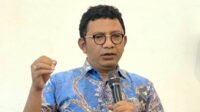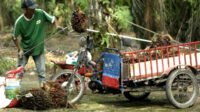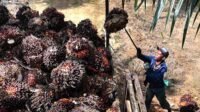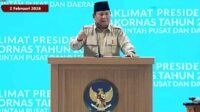PALMOILMAGAZINE, JAKARTA — A new investigative report titled “A Family Affair”, released by Kaoem Telapak and the Environmental Investigation Agency (EIA), has revealed allegations of systematic legal, environmental, and human rights violations by a network of palm oil companies linked to the Fangiono family—one of the most influential dynasties in Indonesia’s agribusiness sector.
The report alleges that several major corporate groups—where key roles such as ultimate owners, beneficiaries, and directors are held by Fangiono family members—namely First Resources, FAP Agri, and Ciliandry Anky Abadi (CAA), are implicated in large-scale deforestation, prolonged conflicts with Indigenous and local communities, and illegal operations lacking proper permits.
Among the findings, investigators documented extensive forest clearance, including more than 6,000 hectares allegedly cleared by CAA affiliates in Papua since 2022. Elsewhere, the report highlights suspected manipulation of plasma schemes and failures in corporate social responsibility (CSR) programs, which have triggered farmer protests and complaints over unfair profit-sharing arrangements.
According to the statement received by Palmoilmagazine.com on Sunday (Aug 10, 2025), the report also notes instances of plantation activities being conducted without valid land-use permits (HGU) or forest release licenses. In one case, operations allegedly continued despite official stop-work orders. Another key concern raised is the issuance of Indonesian Sustainable Palm Oil (ISPO) certifications to companies accused of severe violations—casting serious doubts on the credibility of the national certification system.
The report further details ongoing disputes with Indigenous groups such as the Dayak Agabag in Kalimantan and the Moi in Papua, citing allegations of intimidation, criminalization, and destruction of local food crops.
Olvy Tumbelaka, Senior Campaigner at Kaoem Telapak, underscored the stark irony revealed by the report, stating that Indonesia’s forests continue to be sacrificed for the benefit of a powerful business elite. He emphasized that legal loopholes, weak enforcement, and conflicts of interest have enabled large-scale operations to persist with little accountability.
He further warned that such practices could potentially breach the EU Deforestation Regulation (EUDR), which requires strict due diligence in commodity supply chains—including palm oil—to ensure they are deforestation-free.
“This report is not only about environmental destruction—it is about the fundamental rights and dignity of the communities living in the affected areas,” Tumbelaka stressed. (P2)

